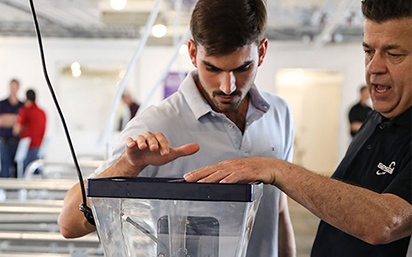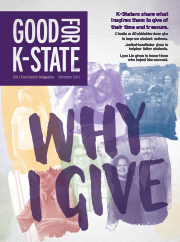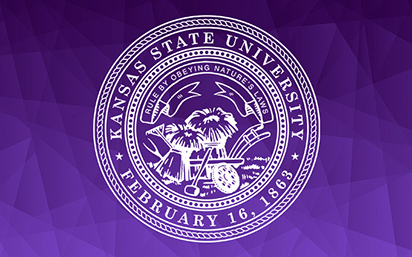
What you need to know about the search for the next K-State president
During his time as university president, Richard Myers '65 has made an impact on Kansas
State University that will last many years into the future, even after he retires
and closes the door to his office in Anderson Hall for the final time later this year.
The search process for the next president of K-State has already begun. Here's what
you need to know:
1. When will a new president be named?
Myers announced that he plans to retire at the end of 2021. He is K-State's 14th president
and has been with the university since 2016. A specific date when a new president
will be named has not yet been determined.
2. How will the next president be selected?
The Kansas Board of Regents has appointed 25 members to a search committee that will
assist and advise the Board in the search for the next K-State president. (Note: The nine-member Kansas Board of Regents is the governing board of the state’s
six universities and the statewide coordinating board for the state’s 32 public higher
education institutions.) The search committee includes representation from university students, faculty, staff,
alumni and members of the Manhattan, Kansas, community.
3. Who will lead the search committee?
K-State alumnus Carl Ice '79 will serve as chair of the search committee. Ice is the
retired CEO of BNSF Railway, and was recently appointed to the Board of Regents by
Kansas Gov. Laura Kelly.
4. Who is serving on the committee?
• Mark Hutton '77 (vice chair), founder of Hutton Construction
• Glenn Caldwell '70, retired U.S. Air Force lieutenant colonel
• Shari Crittendon, K-State general counsel
• Michael Dowd, K-State student body president; studying animal science and global food systems leadership
• Blake Flanders '86, '89, '04, Kansas Board of Regents president and CEO
• Wayne Goins, K-State University Distinguished Professor of Music and director of jazz studies in
the School of Music, Theatre and Dance
• Tanya González, professor in the K-State Department of English and currently serving as the acting
associate provost for institutional effectiveness
• Kevin Gwinner, Edgerley Family Dean for the K-State College of Business Administration
• Terry Holdren, CEO/general counsel of Kansas Farm Bureau
• Maria Izquierdo, K-State student studying nutritional sciences
• Nabeeha Kazi Hutchins '96, K-State Alumni Association board of directors chair
• Steve Lacy '76, '77, former chair of the board of Meredith Corporation; current K-State Alumni Association
board member
• Kevin Lockett '96, partner at Fulcrum Global Capital
• Dennis Mullin, chairman of Steel and Pipe Supply
• Mary Oborny, president of K-State's University Support Staff Senate
• David Poole, K-State University Distinguished Professor of Kinesiology and Anatomy and Physiology
• Usha Reddi '03, '11, Manhattan city commissioner
• Darrell Reese Jr. '20, management trainee on the College Recruiting Team at BNSF Railway
• Charles "Chuck" Rice, K-State University Distinguished Professor and holder of the Vanier University Professorship;
professor of soil microbiology in the Department of Agronomy
• Pat Roberts '58, former U.S. Senator
• David Rosowsky, K-State vice president for research
• Alysia Starkey '10, CEO and dean of K-State Polytechnic
• Gene Taylor, director of K-State Athletics
• Mary Vanier '89, vice chair of the KSU Foundation board of directors
• Lisa Wilken '03, K-State associate professor in the Carl and Melinda Helwig Department of Biological
and Agricultural Engineering
5. What are the next steps?
The search committee will work with an executive search consultant to screen potential
candidates. The committee will evaluate nominations and applications, and then will
present an unranked list of at least four candidates who are the most qualified for
Kansas Board of Regents selection as the next president of K-State.

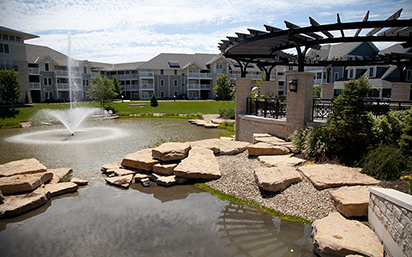
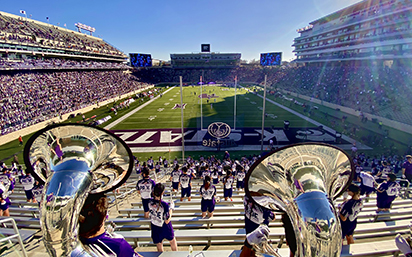
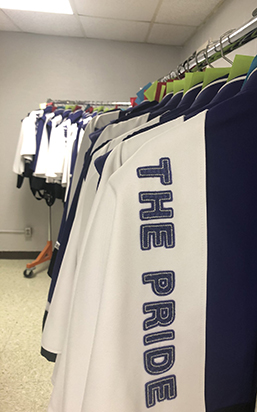 For Gillian Falcon, senior in chemical engineering and head drum major, the biggest
challenge was finding ways to connect with all the band members and keep the same
atmosphere when everything seemed so uncertain.
For Gillian Falcon, senior in chemical engineering and head drum major, the biggest
challenge was finding ways to connect with all the band members and keep the same
atmosphere when everything seemed so uncertain.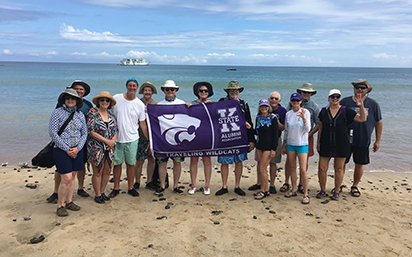
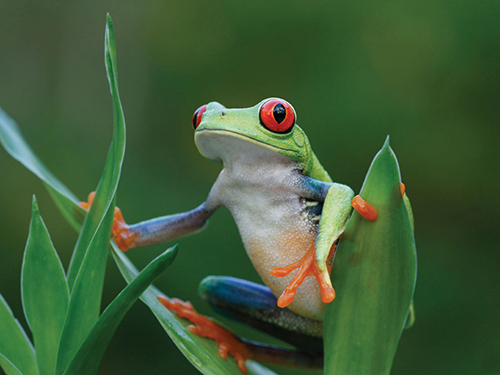




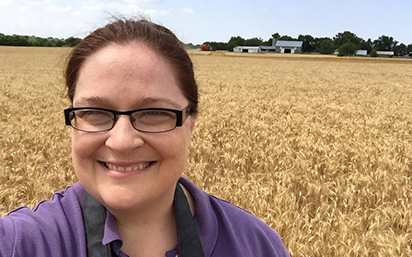
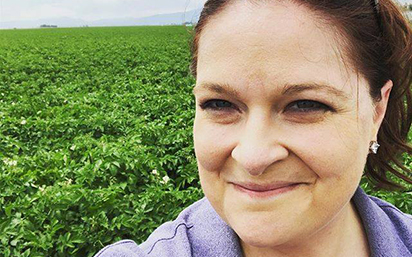 A lifelong Kansan who went to school in Chapman, Kansas, Latzke graduated from K-State
in 2000, earning a Bachelor of Science in agricultural communications and a minor
in animal science.
A lifelong Kansan who went to school in Chapman, Kansas, Latzke graduated from K-State
in 2000, earning a Bachelor of Science in agricultural communications and a minor
in animal science. 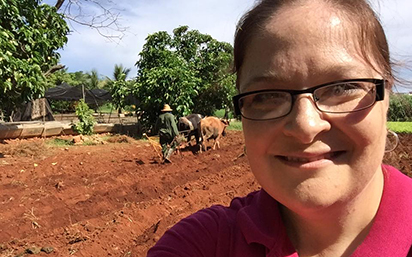 During her two decades in agricultural communications
During her two decades in agricultural communications